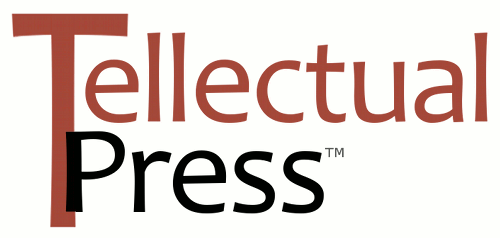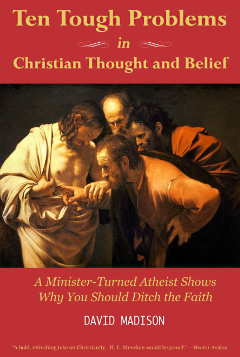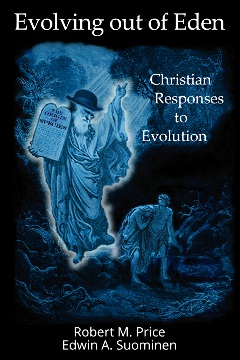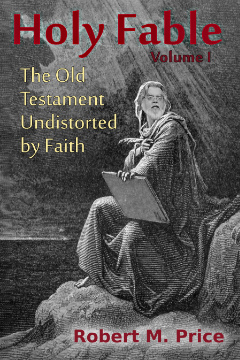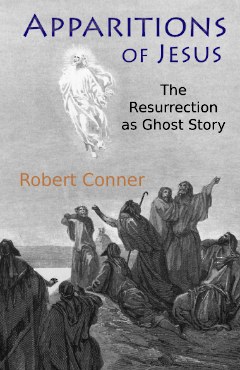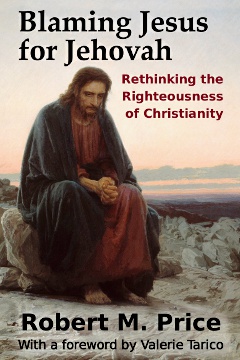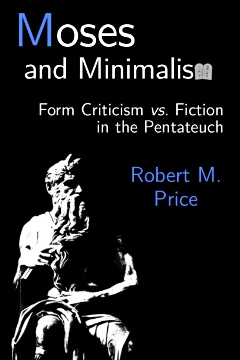Favorite Quotes
Evolving out of Eden
Creationists relentlessly defend Genesis with viewpoints and arguments that range all across the spectrum of absurdity, seemingly oblivious of modern science. Meanwhile, the sophisticated theologians blaze their various trails outside Eden with a shared motivation to wind up at the foot of the old rugged cross, no matter what. Divided as they all are in their approaches, even between creationism and evolution itself, they still unite in just knowing that their beloved Christianity is true.
In the words of Psalm 139, we are fearfully and wonderfully made. It’s still true, even if we weren’t assembled by a creator in the darkness of the womb with our entire lives and thoughts mapped out ahead of time. . . . Yes, there is grandeur in this view of life, as Darwin famously concluded in his masterpiece. It is a grandeur that we can only see if we finally leave the cave—not just the smoky recess in the rock in which that Cro-Magnon played his flute, but Plato’s cave of cozy ignorance. Those lingering inside only see the shifting shadows, without any knowledge of the realities behind them. The great enlightenment is when man manages to slip outside and see his true likeness for the first time, in the full flood tide of the sun.
In Jesus Christ Superstar, Pontius Pilate complains, “You Jews produce messiahs by the sackful!” Just as there were many prophet-messiah figures wandering around Roman-occupied Palestine, there were untold numbers of candidates for the “first” humans during the gradual, evolutionary transition to our current species. Every early human, no matter how many thousands and millions of years back you go in prehistory, had parents who were pretty much as human as he or she was.
And, come to think of it, why should God or Christ not have revealed a good bit about modern medicine and its administration to his ancient, suffering people? And while he was at it, if he had really wanted the Great Commission fulfilled lickety split, why not give the apostles the blueprint for the printing press, as he once gave the plans for the ark to Noah? He could have jump-started the Reformation by more than a thousand years, just like that. These are serious questions showing how the rationalizations of the evangelical evolutionists, as with all apologists for the Bible, are mere ad hoc hypotheses to cover the biblical butt.
The writer of Psalm 8 looks at man’s lowly place in the cosmos and is filled with wonder that God would take any thought of him, much less “crown him with glory and majesty” and “put all things under his feet.” The Psalmist had it half right. We are mere specks in the universe, even in the biosphere that has evolved on this warm, wet planet we call home. After millions of years of evolution from small, furry tree dwellers, our brains and now our culture have finally given us a unique ability to introspect about ourselves. Now we look in the mirror and see God’s image and a crown of exaltation over nature, when the true picture is of a naked ape, an organism containing trillions of cells locked in a symbiotic embrace for the propagation of their genetic legacy—human, viral, and bacterial.
Sequencing technology has given us a glimpse deep inside the structure, right into the forbidden holy place where Moses’ tablets supposedly bore the very writing of God. We’ve peeked behind the curtain looking for a relic written with “the language of God” as Francis Collins puts it. And what’s there? Just more of the same damn naturalism.
We have come full circle. Religion originally provided the explanation, but now it is what requires so much explaining from its frustrated adherents.
Freedom to Doubt
Despite what we’re told by those fundamentalists who shun and fear doubt, I intend to use my rational mind to examine many of the most common causes of doubt, in our modern world.
As Christians we want to believe. We struggle to believe. Some of us will even pretend to believe in order to convince others, and perhaps even ourselves, that we are “good” and faithful Christians. Yet for many of us, there comes a time when we must admit to someone—anyone—that we “struggle with doubt.” But doing so isn’t always as easy or straightforward as it sounds.
The fact that we call our religion the Christian faith rather than the Christian fact should tip people off that faith does not and should not exclude doubt. Doubt is part of the package.
Sometimes we Christians find it hard to look beyond our religious texts, dogmas, and Church communities. We get so wrapped up in believing all of the “right” things that we forget that those texts, dogmas, and communities are all simply pointers towards something greater than us all.
A Wave of Hypercriticism
People who thought they already knew the truth found that they must go back again to the beginning to hunt once more and see whether they could reach the mark. Was it not enough that criticism had left untouched only four authentic epistles in the [New Testament]? Was it not sacrilege to ask these four for their origin, as if everybody did not know this perfectly?
Whoever wants to become acquainted with the Pauline leading epistles in order to put himself and others in the way of a possible answer to the question as to their origin, ought to read and study them according to form and contents without cherishing beforehand a decided opinion as to their origin. Either begin by accepting the authenticity or not, but always leave room for the opposite opinion. The exegesis of one who does not do this is not free but bound, bound to tradition, bound to fiction. The one proper basis, the only truthful internal evidence fails him.
No error committed by a younger generation can ever make to be true anything in the opinions of an older generation which has once been discovered to have been false.
Eden
Behind them was the depth of the wood, fresh and untarnished, and shadowy even now when the sun, high on the meridian, was making small all shadows. The sleep of the young world was as yet like that of all other young things, untroubled and sweet to look upon. There was no sound except the insistent song of the insects in the hot grasses of the meadows, and no movement except when the air moved slowly through the leaves of the trees, from time to time, and they woke and stirred, and some palm tree, lifting its head above the Garden, would wave its fronds with a gentle gesture.
And now here she lay, compounded all of subtle curves and delicate surfaces, of balanced shapes and colors, fine textures and a rhythmical flow of line, before the eyes of God, awaiting His breath within her nostrils that should make her live.
The winds came down later, and drove through the tops of the trees like mad spirits, so that the universe was filled with malignity, and the trees bending in their torture screeched like fiends. Night was upon the earth, and such a night as would drive men mad.
Then came the Thunderer. A first blinding flash in the darkness showed Adam and Eve, white and alone in the midst of this fury, standing dismally aloof, dumb in their fear beneath a big oak in the thick forest.
“This is wrong,” he said to himself immediately, with the sense of his new instinctive taste for good and evil strong upon him. He felt now that he could jump to outright conclusions, the moment he laid eyes upon an object or an act.
“This is wrong,” he thundered, scowling, and prepared to descend and put an end to the outrage. He must henceforth put down all evils, right all wrongs, make straight all crooked places of the world.
Moses and Minimalism
[T]he saga of Moses the Lawgiver is a mighty oak, having grown strong and thick through the centuries, with the Pentateuchal version(s) serving as the acorn.
But we can and must go farther: Even the biblical Moses is already a mighty rock with many layers of sediment. Some unnamed, undated compiler wove together four distinct Moses stories, all of them so widely esteemed, each with its own avid partisans, that little or nothing might be omitted. Of these, the most ancient (though perhaps younger than Old Testament critics used to think) was the so-called J source, so named for its preferred use of Yahweh (Yahve or Jehovah) for the divine name, and because of its concentration on locales in Judah, the south of the Holy Land.
Just as the Gospels of Matthew and Luke skip from Jesus’ childhood straight to his public ministry as an adult, leapfrogging the hypothetical events of his childhood and young adulthood, so does Exodus proceed directly from Moses’ nativity to his adulthood. Just as the Apocryphal Infancy Gospels sought to fill Jesus’ biographical vacuum with tall tales of childhood miracles, so did Josephus provide “information” on Moses’ adventures as a loyal member of Pharaoh’s court, and some of this made it onto the silver screen. But the Bible provides very little about Moses’ life before God called him to liberate Israel. Where did this (scant) material come from? Mostly, it was borrowed from the Genesis stories of the Patriarch Jacob, Abraham’s grandson.
It begins to look like the story of Aaron unveiling the Golden Calf was originally not a sad account of apostasy and idolatry but rather one of our ceremonial myths, one repeated by the priests of Dan and Bethel when pilgrims inquired, “But how do we know this is what Yahweh really looks like?” But this suggestion, which I find quite compelling, only makes sense once we untangle the rewriting that has affected the hypothetical original.
In the story as we now read it, Moses returns during the celebration of the new image and demands to know how Aaron allowed himself to be made part of such a scheme. Embarrassed and ashamed, Aaron tries to evade responsibility in what we are intended to view as a pathetic and transparent excuse.
Blaming Jesus for Jehovah
A fog of time and distance hides whatever historical kernel may lie beneath and behind the New Testament gospels, but at any rate this kernel was not the core concern of the writers. Scholars now understand gospels as a form of religious literature that was common during the 1st and 2nd centuries C.E. Those gospels, including the ones in the Bible, are not histories, because they were never meant to be histories, but rather are devotional pieces that employed narrative to convey what the writers considered to be deep spiritual truths.
Like the stories of the Old Testament, the Gospels reweave mythic tropes from the pagan religions that predated and surrounded the ancient Israelites and the early Church. Add this to the fact that many biblical narratives are scientifically untenable or morally dubious–incompatible with what we know about love and truth–and it becomes clear why Anglican Bishop John Shelby Spong has called biblical literalism “a gentile heresy” or worse, “bibliolatry.”
If you harbor doubts about some cherished belief, you do not want to hear them from someone else, since that would mean there really is a problem. Not just in your imagination, which is what you wish it were!
But if you have come to the point that the torture of suppressing doubt is a greater burden than facing the threat directly, this book is for you. Or if you are a believer who is fair-minded enough to admit that your faith can never be honest until you take an unblinking look at it, to see what it is worth, then the book is for you, too. Such readers, I believe, will have too much common sense to let themselves be gulled by sophistry and spin.
As I write, Americans (to say nothing of those closer to the events) are much concerned, much alarmed, at an advancing tide of savagery and barbarism perpetrated in the name of Islam. The Caliphate, or Islamic State, helmed by one Abu-bakr al-Baghdadi, considers it their religious duty to conquer the world in the name of Islamic jihadism. All must live under the strictures of Shariah law. For them, all’s fair in faith and war; thus, they commit mass crucifixions, beheadings, rapes, child murders, and sex-slave trading.
Yet the Christian holy scripture, the Bible, explicitly ascribes the very same moral crimes to God. Islamic Caliphate killers don’t even need the Koran. There are hundreds of passages in the Holy Bible which would be more than enough to inspire their horrors. These are strong words, I know. I hate to have to write them. I hope you will have the courage to read them. It comes down to a question of your own integrity. I hope you will see that.
If pre-Christian Israelites got along just fine without knowing about Jesus and his cross, why can’t the rest of us? This problem is so serious that some have resorted to a desperate expedient, suggesting (really, pretending) that everybody in ancient Israel did know all about Jesus and his eventual sacrifice.
Every summons to repentance, whether in the Bible or in modern evangelistic crusades, assumes the hearer is capable of deciding to heed it. All Christian exhortation plainly presupposes that one has the freedom to choose the good over the evil. Otherwise, what on earth is the point? Even Calvinists believe this is the case, perhaps surprisingly given their belief in predestination. They do not deny that the sinner makes the choice to repent and believe; they just say that somehow the decision was also God’s on our behalf, and that otherwise we could not make the decision.
But isn’t it a blatant contradiction to juxtapose predestination and free will in this manner? They appear to be mutually exclusive, but Calvinists say they embrace both simultaneously. They call it an “antinomy.” But that’s just a cop-out. I call it “doublethink.”
